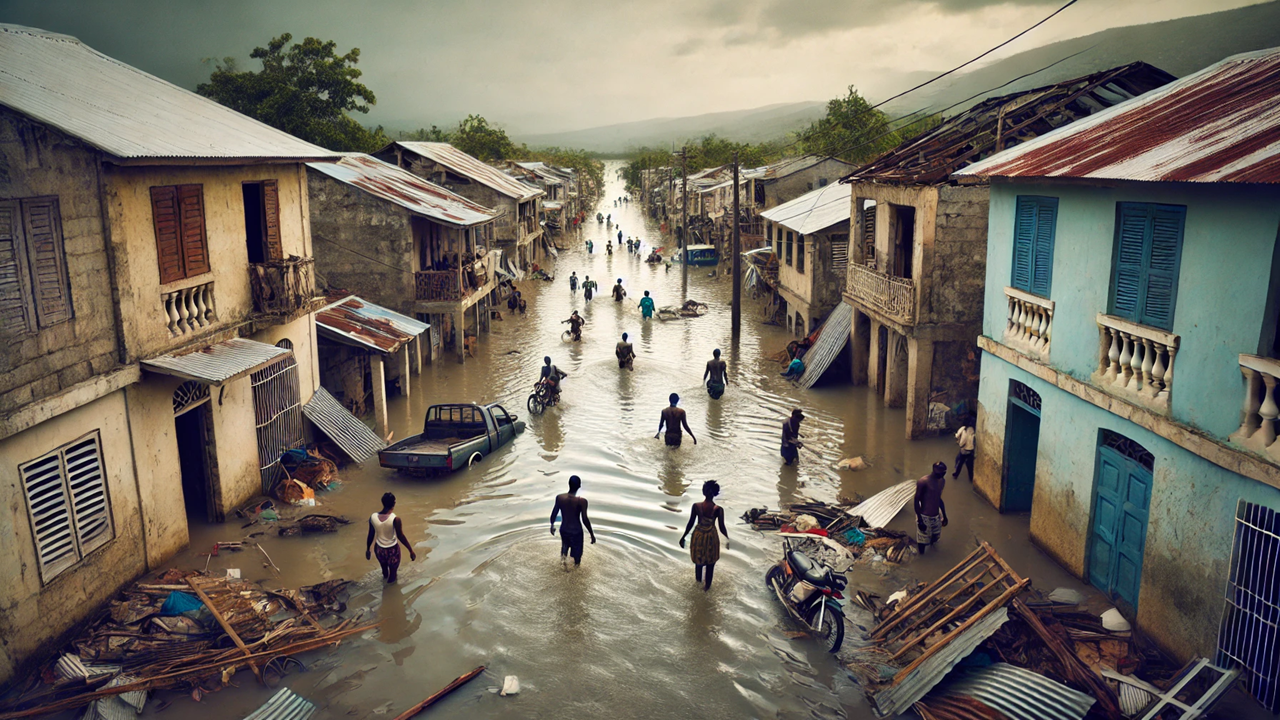Haiti on the Edge: Battling Climate Change and Health Crises
Haiti's vulnerability to climate change poses severe health risks. The country faces increasing temperatures, hurricanes, floods, and droughts, impacting agriculture and exacerbating food insecurity. The health system requires strengthening to adapt to these growing challenges. Key recommendations include integrating climate change into health strategies, securing funding, improving health service delivery, expanding information systems, and developing resilient infrastructure.

Haiti, a Caribbean nation, is grappling with the severe impacts of climate change, which are exacerbating existing vulnerabilities and creating new health risks. According to a recent "Climate and Health Vulnerability Assessment" report by the World Bank, Haiti's geographic location, coupled with its low economic development and limited resources, makes it particularly susceptible to climate-induced disasters. The country faces a future where sea-level rises (SLRs), increasing temperatures, hurricanes, and heavy rainfall are more frequent and intense.
The Impact of Extreme Weather
Over the past 30 years, Haiti has experienced numerous flooding events, significant storms, and hurricanes. These extreme weather events have not only damaged infrastructure and homes but have also led to significant disruptions in economic activities, particularly in agriculture. Periodic droughts have further strained the nation's agricultural production, exacerbating food insecurity and malnutrition.
Hurricanes, droughts, and floods have had a devastating impact on Haiti's food production, destroying crops and disrupting supply chains. This has contributed to widespread food insecurity and malnutrition, particularly among vulnerable communities. Severe weather events have also caused significant damage to infrastructure, forcing people to flee their homes and seek refuge elsewhere, adding to social instability and conflict.
The health risks posed by climate change in Haiti are significant and projected to increase. The report identifies several climate-related health risks, including increased injuries and fatalities due to extreme weather events, heat-related morbidity and mortality, nutritional risks, water-related diseases, vector-borne diseases (VBDs), exacerbation of respiratory risks, and a decline in physical and mental health and well-being.
Strengthening Health System Resilience
While the Haitian government is committed to addressing climate change through multiple national plans, further efforts are required to strengthen the adaptive capacity of the country’s health system to meet growing needs. The report points out that Haiti doesn't have enough funding for climate health programs and infrastructure, and it also struggles with implementing climate-informed measures like early-warning systems.
To improve the health system’s resilience to climate change, the report recommends incorporating climate change into health plans and strategies. This involves creating a governance and policy landscape that strengthens the country’s health system resiliency. Additionally, securing budget lines to channel funding for implementing climate-health interventions is crucial.
Key Recommendations for Adaptive Capacity
Developing strategies that integrate climate considerations into health policies is essential for creating a robust and resilient health system. Providing specific budget lines for climate health interventions will ensure that adequate resources are available for necessary adaptations. Enhancing health services, particularly in frontline communities affected by extreme weather events, is critical to managing the impacts of climate change on health. Utilizing existing data systems like Haiti Data to collect and analyze climate and health data can help in timely decision-making and intervention planning. Implementing building codes aimed at making health facilities more resilient to climate hazards will ensure continuity of care during extreme weather events.
The "Climate and Health Vulnerability Assessment" underscores the urgent need for immediate and effective measures to mitigate and adapt to the impacts of climate change in Haiti. Investing in adaptation strategies to proactively address the effects of climate change on health outcomes is critical. The report provides a structured approach to understanding the climate risks to health and health systems, identifying adaptive capacities, and addressing gaps to enhance resilience to climate-related health risks.
Haiti stands at a critical juncture where the convergence of climate change and health risks demands urgent and coordinated action. Strengthening the health system's capacity to adapt to climate change will not only protect lives but also foster resilience and stability in the face of an uncertain future.
By recognizing the interconnectedness of climate change and health, and by implementing the recommended strategies, Haiti can build a more resilient future for its people, safeguarding them against the escalating threats posed by a changing climate.
- FIRST PUBLISHED IN:
- Devdiscourse










